We have much more to do and your continued support is needed now more than ever.
Why Public Lands and the Land and Water Conservation Fund Matter to America’s Veterans & Their Families
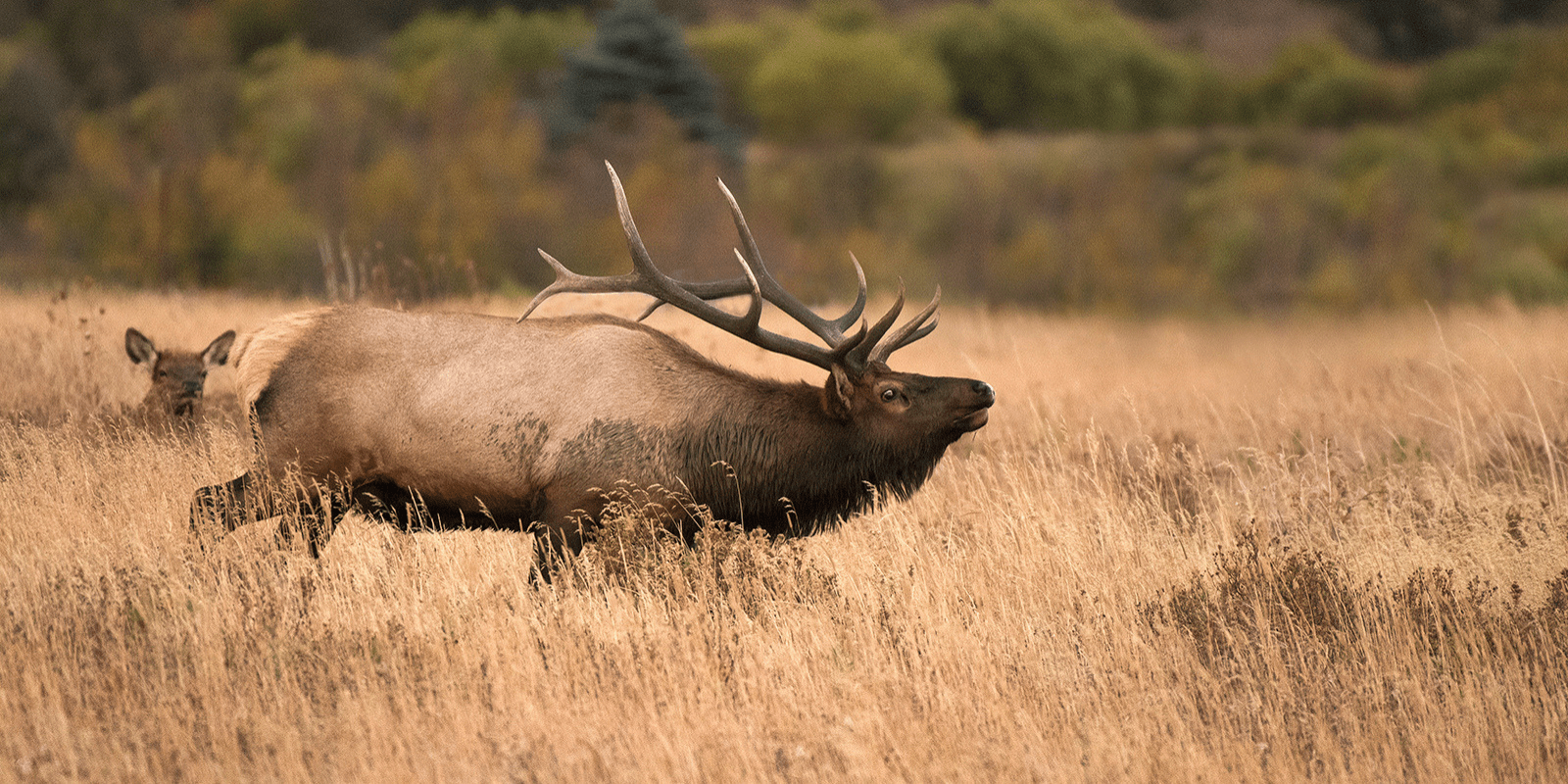
Thump, thump. “Shhhhhh, stop throwing rocks, you are going to scare the fish,” said my grandfather. Heeding this warning and watching him slowly wade up the river to sneak up on unsuspecting trout is one my earliest childhood memories. I had just turned four and my grandfather, a salty, but humorous World War II veteran, wanted nothing more than to teach his grandson how to fish. As I watched him quietly navigate the stream and gracefully approach the next fish, I was amazed at how this environment seemed to be a part of who he was, how it made sense to him, and how he was in harmony with the river and forest all around him. It occurred to me then and many subsequent fishing trips that to my grandfather this was about more than fishing.
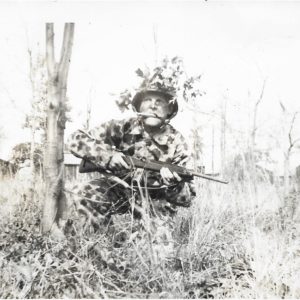
My grandfather had stormed the beach at Normandy, survived the Battle of the Bulge, and marched across France and Germany with General Patton liberating Nazi concentration camps. In the process, he earned a Bronze Star, Silver Star and Purple Heart. While he came back from the war with various medals and honors, he also came back with physical and emotional battle scars; the type of scars that come from encountering hell on earth. Being on the river, listening to the running waters and silence of the forest became a place of healing for my grandfather, a place of peace where he could reconnect with himself and the world around him, and fundamentally a place of hope, where with each new cast, came the potential of a fish of great beauty, size and wonder. As I watched my grandfather that day, I began to realize the power and potential of our nation’s healing waters and public lands.
This realization became even more profound, when 30 years later my best friend since first grade returned from a tour of duty in Afghanistan. I’d known Eric Gonzales almost as long as I had known my grandfather. Though glad to return home to family and friends in New Mexico, Eric’s readjustment from war was not easy. As a Navy Corpsman and medic assigned to a special operations unit, Eric had received a commendation for treating more than 1,000 active duty military and civilian patients. However, with this commendation also came nightmares, trouble sleeping, and other signs of Post Traumatic Stress Disorder (PTSD). As a Presbyterian Minister who worked with disabled veterans as well as a field representative covering veteran’s issues for U.S. Senator Jeff Bingaman of New Mexico, I knew Eric needed professional help, but I also knew he was not open to it and did not want to go to the VA.
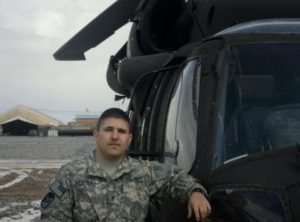
Watching my best friend struggle and not knowing what to do, I did the only thing I knew how to do; I invited him to go fishing. For as long as I can remember, Eric had been my fishing buddy from elementary to high school and into college and now as young adults, Eric and I fished every river, lake and ocean we came across. On a beautiful day in late May, Eric and I fished the Pecos River in northern New Mexico. By mid-day both of us had landed not only lots of nice brown and rainbow trout, but also a couple of fish over 18 inches. As we broke for lunch, I saw Eric do something I hadn’t seen in a while, smile. Like my grandfather, I could see that the beauty and serenity of nature had provided Eric with deep sense of peace and connectedness.
As we drove home from the river that night, Eric began to open up about what he had encountered in Afghanistan. After spending the next few hours listening to some of the pain, frustration and trauma he experienced, I mentioned to Eric that I thought it would be helpful if he met a couple of my veteran friends who worked at the local Vet Center. Although he initially seemed reluctant, I told Eric I would go with him to the Vet Center and that this visit didn’t need to be anything formal, but we could just check out the place, have a cup of coffee and I’d introduce him to some of the folks I knew. When we went to the Vet Center later that week, the staff warmly greeted us. Over the next hour, the Vet Center staff, all of which were veterans themselves, swapped stories with Eric. As trust began to build, Eric began to open up about his experiences in Afghanistan. Before we left that day, Eric made a follow-up appointment with a counselor and over that next year, the Center helped him and his family not only work through his PTSD, but also helped him navigate the larger VA health system. While the journey of healing and wholeness has been long and not easy, America’s public lands and waters created the necessary opening and first step to start the healing process.
In honor of Veterans Day, I sat down with Eric to interview him about his military service, his work as a firefighter and to learn more about why public lands matter to him. Below is the Q & A from this interview:
Q: Tell us about yourself and your service?
Eric: I was born and raised in Santa Fe, New Mexico and spent most of my time growing up in the mountains fishing and hunting on public lands. After graduating from high school, I joined the Santa Fe Fire Department and have held the positions of Fire Fighter, Captain and now Battalion Chief. In 2005, I joined the Navy Reserves as Corpsman, went to Field Medical School and was transferred to the 4th Marines 4th Reconnaissance Battalion Delta Company. In September 2010, I was assigned to an Army unit deployed to Afghanistan for 14 months. While in Afghanistan my primary role was as a medic serving both infantry and flight crews and I responded to over 1,000 combat related calls.
Q: You responded to over 1,000 combat related calls and saw firsthand the hell of war, what helped you persevere each day?
Eric: While serving in Afghanistan, I used remember all the times I went fishing with my family and friends. I’d get out of bed each day and try to remember all of the different hunting trips we took on public lands. I remember thinking about how relaxing it was to just be outdoors in the mountains of New Mexico and Colorado and sitting around the campfire with my dad and uncles. Getting outdoors and on the land to fish and hunt was something I could not wait to do when I got back; it gave me hope and something to look forward to. I realized I was not just fighting to protect our communities back home, but also our public lands and all the memories that went with them.
Q: What do public lands mean to you and why are they important to our veterans?
Eric: Public lands have been my saving grace. Just to know that on any given day I can go fishing or hunt some of the greatest and most beautiful lands in the country is amazing and something worth fighting for. As a veteran and outdoorsman, these lands have given me a great sense of peace, healing, and wholeness. I am an avid fisherman and love to fish rivers and lakes throughout the southern Rockies. As a bow hunter, some of my best memories are elk hunting in the Gila Wilderness as well as turkey hunting with my wife in northern New Mexico. I believe the forests, mountains and rivers on our public lands are places where veterans can find peace, places to relax and let your guard down and just enjoy the solitude and beauty of nature.
Q: Earlier this year, you were featured in the National Wildlife Federation’s Sportsmen’s Report on the Land and Water Conservation Fund (LWCF), tell me why LWCF is so important to you as a veteran?
Eric: As Americans, there are many things we can be proud of when it comes to who we are as a nation. One of the great benefits of our country is the incredible access to our nation’s public lands. Many people don’t realize that the Land and Water Conservation Fund is one of America’s most successful programs and provides funding for outdoor recreation through increased access and opportunity on America’s public lands, supports local parks and trails, restores rivers and watersheds, and protects key wildlife areas. As veterans we share a strong connection to the outdoors and we fought not only to protect our communities, but also access to our public lands that serve as places of healing, peace, and recovery. The Land and Water Conservation Fund not only helps provide essential access to the lands I regularly hunt and fish, but also funds many of our nation’s historic battlefields, including revolutionary and civil war battlefields, the 9/11 Flight 93 memorial in Pennsylvania and Fort Union in my home state. Unfortunately, on September 30, Congress let this fund expire, which is a tragic mistake that will have serious impacts on our communities, sportsmen, and our nation’s veterans.
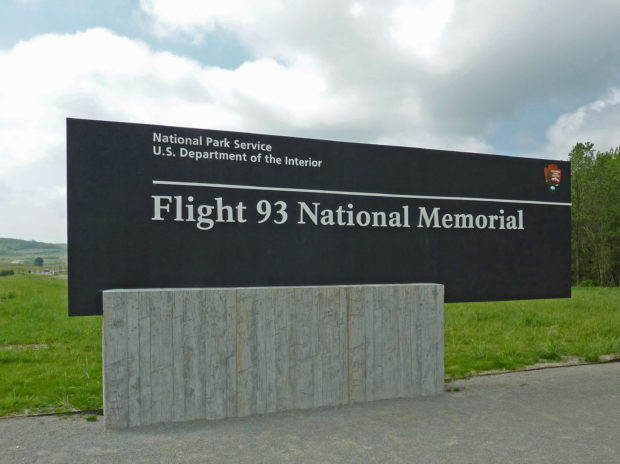
Q: So what is your message to our nation’s policymakers?
Eric: As a combat veteran and public land user, I am asking America’s congressional leaders to do their duty to the American people and to our nation’s veterans by permanently reauthorizing and fully funding the Land and Water Conservation Fund. If there is ever a bipartisan issue where our leaders in DC can come together to work for the greater good, the Land and Water Conservation Fund is it. By supporting this fund, our congressional leaders have a unique opportunity to make a difference to veterans and sportsmen as well as leave their mark on nearly every county in America.
Q: Anything else you want to share on this Veterans Day?
Eric: I know that America’s youth are our future and if they don’t stand up, speak out, and help save our public lands they will disappear. It is important for young people to get onto our public lands, whether it is through fishing, hiking, hunting, camping, or horseback riding. Our public lands are an important part of our nation’s culture, history, and traditions and it is important that we all work together to help kids and families stay connected to America’s lands, water, and wildlife.
FUND LWCF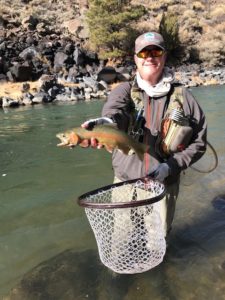 Andrew Black resides in Santa Fe New Mexico, is an avid sportsman, an ordained Presbyterian Minister (PCUSA) and is the National Wildlife Federation’s Public Lands Field Director. Prior to working at NWF, Andrew led the New Mexico Wildlife Federation’s veterans’ initiatives as well as previously covering veterans’ issues for U.S. Senators Jeff Bingaman and Martin Heinrich. While working with the Senators, Andrew spearheaded efforts to get two new veteran health clinics in northern New Mexico. This blog builds off the work Andrew previously wrote about in the New Mexico Wildlife Federation’s Outdoor Reporter.
Andrew Black resides in Santa Fe New Mexico, is an avid sportsman, an ordained Presbyterian Minister (PCUSA) and is the National Wildlife Federation’s Public Lands Field Director. Prior to working at NWF, Andrew led the New Mexico Wildlife Federation’s veterans’ initiatives as well as previously covering veterans’ issues for U.S. Senators Jeff Bingaman and Martin Heinrich. While working with the Senators, Andrew spearheaded efforts to get two new veteran health clinics in northern New Mexico. This blog builds off the work Andrew previously wrote about in the New Mexico Wildlife Federation’s Outdoor Reporter.





















